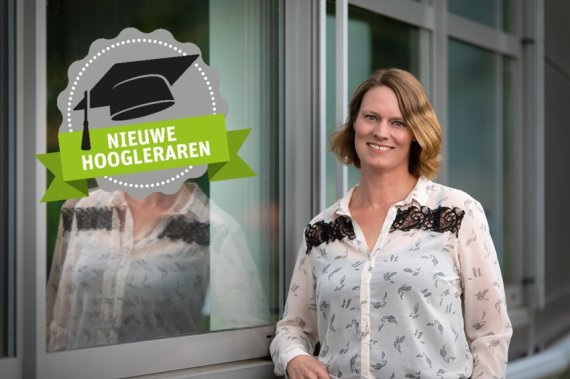On 1 February 2019, Emely de Vet became head of the new Consumption and Healthy Lifestyles chair group. She sees it as her task to decipher the complex relationship between nutrition, identity and living conditions.
Together with her colleagues, De Vet tries to figure out why people lead healthy or unhealthy lives and how we could encourage healthier and more sustainable lifestyles. You won’t get there with just information and advice, the approach health experts have mainly used so far, says De Vet. ‘That just increased the existing gap between the highly educated and people with relatively little education. People who were in a position to follow the advice started eating a healthier diet but others did not.’
Diet and identity
If you only tell people how to eat more healthily, you are wrongly putting all the responsibility on the individual whereas many other factors play a role in their behaviour, according to De Vet. ‘A healthy lifestyle is much more complex than saying no to cake. People with less education often earn less and live in neighbourhoods where the food on offer is less healthy and where they are surrounded by others who also have unhealthy diets. Your income determines what you can buy, and a healthy diet is less of a priority if you have money worries.’
This complexity intrigues De Vet. ‘Your diet says something about you, your position in the group and your knowledge and convictions. Teenagers want to buy their own food for example, to show that they can fend for themselves. But they don’t have much money and so they often end up in the snack bar.’
People’s own perspective
De Vet and her group want to get a picture of these underlying processes and use that information to design interventions, for example in spatial planning and education, that allow for food’s various functions. ‘At present, most interventions are developed from a health or environmental perspective. We are taking the reverse approach of looking at what role food plays in people’s daily lives so that we key into people’s own perspective. Take the elderly. Interviews show that they use food to create structure in their lives and they don’t like eating alone. It’s all very well saying “Put an extra spoonful of veg on your plate” but that doesn’t relate to their situation at all.’
There is no one-size-fits-all solution, says De Vet. ‘Consumption and lifestyle are complex topics that require an interdisciplinary approach. We have sociologists, psychologists and epidemiologists working in our group. A lot of research has been done within all those disciplines on this subject; our task is to connect up that knowledge. We also collaborate a lot with people in the field and policy-makers – for example in local government, education and healthcare – so that we can generate a direct impact.’
Art college
De Vet also adopts an interdisciplinary approach in teaching. ‘I’m not just thinking about the education of students but also about training in various professions where increasing attention is being paid to nutrition and lifestyle, such as healthcare, social work and schools. That collaboration can be in two directions: we are working with art college students and spatial planning students, for example, to see how we can use their expertise to develop interventions.’
Emely de Vet (1978, Oud Gastel)
1996-2001 Degree in Health, Maastricht University
2002-2005 PhD, Maastricht University
2006 Postdoc, Erasmus Medical Centre, Rotterdam
2006-2009 Assistant professor in Disease Prevention, VU University Amsterdam
2009-2013 Senior researcher in Health Psychology, Utrecht University
2013-2016 Associate professor in Health Communication, WUR
2015 NWO Vidi grant
2016-2019 Professor holding a personal chair in Health Communication and Behaviour Change and interim chair holder in Strategic Communication
2019-present Professor of Consumption and Healthy Lifestyles, WUR

 Photo: Sven Menschel.
Photo: Sven Menschel. 

